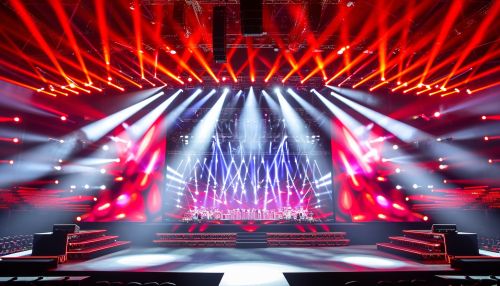Eurovision Song Contest controversies
Background
The Eurovision Song Contest is an annual international song competition, held primarily among the member countries of the European Broadcasting Union. Since its inception in 1956, the contest has been one of the longest-running television shows in the world and has been broadcast every year, making it one of the most watched non-sporting events globally. However, throughout its history, the contest has been the subject of various controversies and criticisms.


Political Voting
One of the most common controversies surrounding the Eurovision Song Contest is the issue of political voting. Critics argue that countries often vote for their neighbours or political allies, rather than the quality of the songs. This has led to accusations of bloc voting, particularly among the Scandinavian countries, the Balkan countries, and the former Soviet Union countries. Despite the introduction of a professional jury to counterbalance the public vote, these allegations persist.
Lyrics and Performance Controversies
The Eurovision Song Contest has strict rules regarding the content of the songs and performances. However, there have been instances where these rules have been breached or controversially interpreted. For instance, in 2009, Georgia withdrew from the contest after the EBU requested a change of lyrics in their song "We Don't Wanna Put In", which was seen as a political statement against Russian Prime Minister Vladimir Putin.
In 2016, the Ukrainian entry "1944" by Jamala won the contest, despite criticism that the song contained political content, referencing the deportation of the Crimean Tatars by Soviet authorities. The EBU defended its decision, stating that the song contained no direct political speech.
Controversial Winners and Results
There have been numerous controversies regarding the winners and results of the Eurovision Song Contest. In 1968, Spain's entry "La, la, la" won the contest amid allegations of vote-buying. In 1991, Sweden and France ended in a tie, but Sweden was declared the winner due to a controversial rule that counted the number of 12-point scores.
In 2003, the UK entry "Cry Baby" by Jemini received the infamous 'nul points', leading to widespread ridicule in the UK media. In 2019, the voting results had to be revised after the contest due to a mistake in the Belarusian jury's results, leading to changes in the final standings.
Political and Social Issues
The Eurovision Song Contest has often been a platform for political and social issues, leading to controversies. In 2005, Lebanon withdrew from the contest due to its refusal to broadcast the Israeli entry, as required by the contest rules. In 2012, the contest held in Azerbaijan was criticized for the country's human rights record.
In 2014, Austria's winner Conchita Wurst, a drag queen performer, sparked debate about gender identity and LGBT rights. In 2019, the contest held in Israel faced protests and calls for boycott due to the Israeli-Palestinian conflict.
Conclusion
Despite the controversies, the Eurovision Song Contest remains a popular event, watched by millions of viewers worldwide. The contest's ability to spark debate and highlight social and political issues is arguably one of its strengths, ensuring its relevance and longevity.
